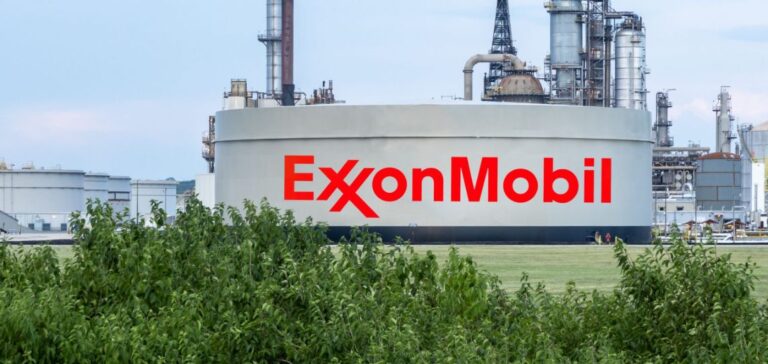The recent quarterly financial results of the two American energy giants, based on data published for the fourth quarter. ExxonMobil achieved quarterly revenue of $83.43 billion, falling short of the $86.33 billion forecast, while its net profit reached $7.61 billion, exceeding FactSet’s consensus of $6.98 billion. The earnings per share, excluding exceptional items, stood at $1.67, compared to an estimate of $1.55. These figures reflect a performance supported by record production levels in strategic basins such as Guyana and the Permian Basin.
Financial Results
On the other hand, Chevron failed to meet analysts’ expectations. In the fourth quarter, the group posted a net profit of $3.2 billion, a 43% increase from the previous year, yet its adjusted earnings per share remained below forecasts at $2.06 versus the anticipated $2.11. The decline in refining product margins had a significant impact, despite higher sales volumes partly attributed to the integration of PDC Energy, acquired in 2023.
Cost Optimization and Synergies
ExxonMobil has realized structural cost savings of $12.1 billion since 2019, with a target to increase these savings to $18 billion by the end of 2030. The integration of Pioneer Natural Resources, completed in late 2023, has strengthened its upstream activities (exploration, development, and production) and is expected to generate synergies estimated at over $3 billion per year. The group anticipates increasing its daily oil production from 1.5 million barrels in 2024 to 2.3 million barrels by 2030.
Outlook and Structural Adjustments
Beyond the fourth quarter results, ExxonMobil reaffirms its strategy to enhance long-term operational cash flows, with a vision of value creation extending to 2030 and beyond. The group’s performance is also marked by declining margins in refining and lower gas prices compared to the historically high levels of 2023. In contrast, Chevron remains focused on reducing its structural costs, targeting $2 to $3 billion in savings by the end of 2026, to offset the declining margins on its refined products.






















